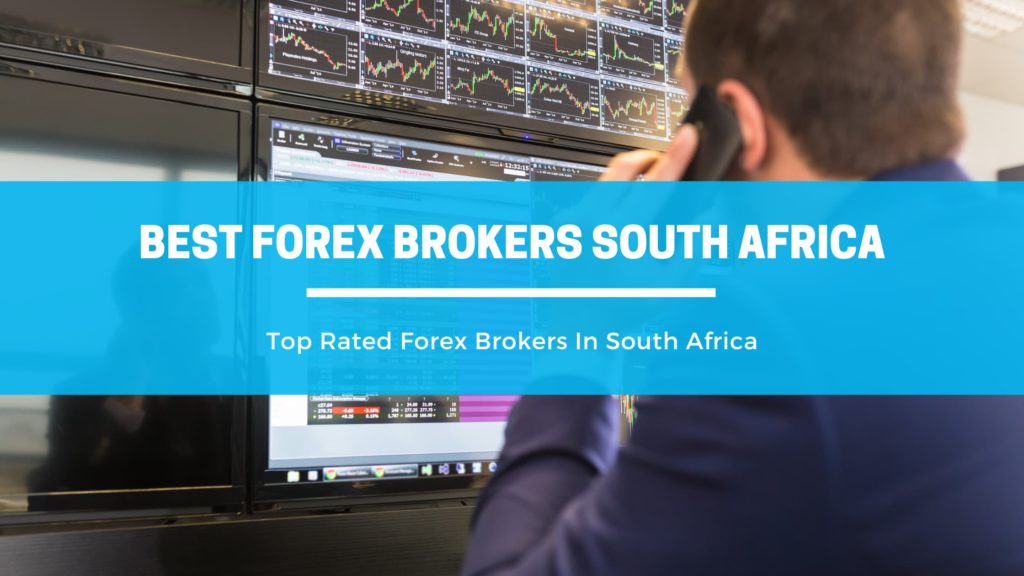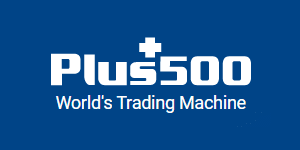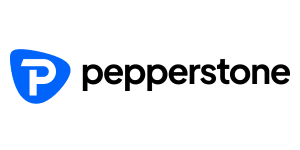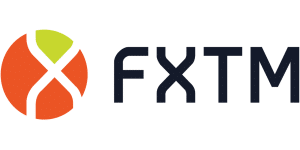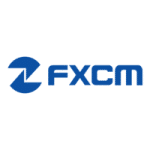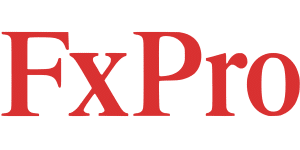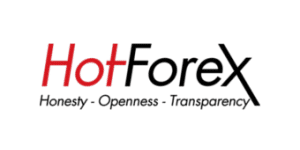In this guide on the top forex brokers in South Africa, we go over the top-rated brokers on a variety of factors. We base our guides on hours of research and outline our top picks. Minimum deposit, low fees, account opening, regulation, trading platform, and more are taken into consideration.
Best Forex Trading Platforms South Africa 2023
Here is our list of the South Africa Forex Brokers for 2022. We’ve detailed their benefits and given you our opinion on where they might lack. You should read the guide on trading platforms in South Africa.
- Plus500 – Our Top Pick for Forex CFD Trading In South Africa
- Pepperstone – Best Low Spread Forex Broker South Africa
- AvaTrade – Best Forex Broker App South Africa
- XM – Best South African Forex Broker for Education
- FXTM – Best Customer Service Forex Broker South Africa
- FXCM – Best Algorithmic Forex Broker South Africa
Plus500 – Top Rated Forex Broker South Africa Overall
Plus500 is our top pick amount for South African ex Traders. They are well-regulated by top-tier regulators.
Plus500 is great for CFD Forex day trading. It boasts over 2,000 CFDs available. This includes cryptocurrencies, forex pairs, options, and more.
Plus500 gives you an easy way to test out their platform with a demo account. It offers tight spreads and free deposits and withdrawals. The robust 24/7 customer support is a finishing touch for those wanting a seamless experience.
This brokerage lacks educational resources and research tools. Traders will have to find additional resources elsewhere. Read Full Review
| PROS | CONS |
|---|---|
| Mobile App | Only CFD |
| Demo Account | Education and Research |
| Regulation |
Pepperstone – Low Spread Forex Broker South Africa
Pepperstone comes in second and is best for its low
spreads. They are regulated by
ASIC, CySEC, FCA, SCB, DFSA, BaFin, and CMA. Their execution
speeds are fast, with a 99.95% fill rate.
Pepperstone
offers CFDs on Forex, Cryptocurrency, Shares,
Indices, and Crypto. The minimum deposit at
Pepperstone is $0.
Their trading platform is easy to use,
with third-party tools like TradingView integration.
Pepperstone offers MetaTrader 4, MetaTrader 5, and cTrader.
What we like the most are their forex trading fees and customer service.
| PROS | CONS |
|---|---|
| Low Spreads | Only CFD |
| Withdrawal and Deposit | |
| Regulation | |
| Customer Support |
AvaTrade – Best Copy Forex Trading South Africa
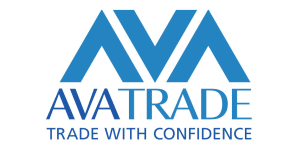
CFDs are complex instruments and come with a high risk of losing money rapidly due to leverage. 71% of retail investor accounts lose money when trading CFDs with this provider. You should consider whether you understand how CFDs work and whether you can afford to take the high risk of losing your money.
AvaTrade is a CFD broker founded in 2006 and regulated by top-tier authorities.
They are regulated by FCA, ASIC, FSCA, FRSA, Israel Securities Authority, Financial Services Agency, and Financial Futures Association of Japan.
Their trading fees are low, built into the spread. For example, the spread for EURUSD pair is around 0.9. The minimum deposit at Avatrade is $100.
Their trading platform is easy to use and available as a desktop, mobile app, and web-based platform. The mobile trading app AvaTradeGO is one of the best in the industry and offers excellent charting and trading tools. AvaTrade offers the popular MetaTrader 4 and MetaTrader 5.
Their AvaSocial allows traders to copy the trades of other experienced traders.
| PROS | CONS |
|---|---|
| Efficient account opening process | Inactivity Fees |
| No deposits and withdrawals fees | |
| Excellent educational tools | |
| Wide range of currency pairs |
XM – Best Education
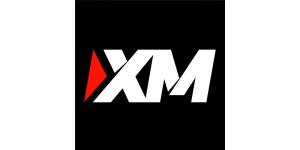
CFDs are complex instruments and come with a high risk of losing money rapidly due to leverage. 74.89% of retail investor accounts lose money when trading CFDs with this provider. You should consider whether you understand how CFDs work and whether you can afford to take the high risk of losing your money.
XM is a well-regulated and trustworthy Forex Broker. XM has low trading and non-trading fees. Opening an account through XM is simple and efficient. XM Offers excellent educational resources and demo accounts for beginners.
The minimum deposit at Xm is $5/ R80 ZAR.
A downside is the lack of investor funds protection for South African customers. XM also offers a limited assets portfolio that only includes CFDs.
| PROS | CONS |
|---|---|
| Low account fees | No balance protection |
| User-friendly account opening | A limited selection of assets |
| Excellent educational tools | |
| Tight spreads |
FXTM
ForexTime (FXTM) was founded in 2012 and is a reliable choice
for South African Forex traders. They are well regulated by
top-tier authorities. FXTM stands out for its excellent
customer service and educational tools. Traders have access
to a free demo account as well as live educational
webinars.
FXTM has fast execution times, tight
spreads, and a lot of trading tools.
| PROS | CONS |
|---|---|
| Easy account opening process | Inactivity and withdrawal fee |
| Reliable customer service | High CFD fees |
| Premium educational tools |
FXCM
Forex Capital Market (FXCM) offers a great range of CFD investment assets.
FXCM offers its customers third-party platforms, including ZuluTrade and MetaTrader4. These give you access to a range of useful charting tools and technical indicators.
A downside is the high account inactivity fees. This only applies to you if your account is inactive for more than a year.
| PROS | CONS |
|---|---|
| Wide range of platforms | Inactivity Fees |
| Mobile App | |
| Tight Spreads |
FxPro
FxPro offers access to a range of premium platforms. These include cTrader, MetaTrader4, and the FxPro Edge.
These come with various useful tools, educational resources, and top-notch market analysis.
The spreads and fees are not the most competitive. Customer support is also not very responsive.
| PROS | CONS |
|---|---|
| Trading Tools | Fees |
| Education and Research | Customer Support |
| Trading platforms offered |
HotForex
HotForex is best known for its market execution, offering tight spreads to retail South African traders.
It features a selection of account types ideal for both professionals and beginners. There is a low minimum account deposit of $5.
On the negative side, there are no other investment products available besides Forex and CFDs.
| PROS | CONS |
|---|---|
| Tight spreads | Only CFD |
| Account Types | |
| Research | |
| Customer Service |
>> Want to Trade Forex? Check out our guides on:
What to Look for?
When picking the best south African forex broker, we advise you to remember the following.
Regulation
The company you pick should be registered with at least one financial regulating authority. The Financial Sector Conduct Authority (FSCA) is the regulating body in South Africa. Your brokerage firm needs to follow all the rules and regulations set out by the FSCA.
Account Security
The best will make your account security a top priority. Account security features help ensure that your account is protected from growing cyber threats. Features such as two-step authorization should be included. This ensures your personal information is kept safe.
Currency Pairs Offered
You need to make sure to find a broker that offers the exact currency pairs that you are interested in. The best offer traders a wide selection of currency pairs.
Fees & Commission
Some charge a wide range of trading and non-trading fees. If you’re a retail trader then it’s best to choose a broker with low commission fees. It’s important to be aware of all the fees in advance.
Rollover Interest
Rollover interest is charged by a broker when a position is held at the end of a trading day. Different brokers might charge different rollover interest rates. Low rollover interest rates are best for beginner forex traders.
Platforms Supported
A user-friendly platform goes a long way to improving your experience. You should choose one that gives you access to premium platforms such as MT4, cTrader, MT5, or proprietary. Some offer their proprietary solutions, which offer unique tools and features.
Leverage and Margin
Leverage is when you use borrowed capital to open a trade position or make an investment. This has the potential to increase your returns, but it increases your potential risk at the same time. High leverage trades usually lead to higher risks. This will depend on how successful the trade is.
Margin risk is the financial risk that comes with achieving an expected margin. This refers to the probability that a specific economic change will negatively affect your expected outcome.
Account Types
There are different account types available to different types of users. You should know what you are looking for and need. Different account types usually come with different trade fees and account minimums.
Mini or Micro Accounts: A mini account, also known as a micro account, is an account aimed at smaller investors to access the market. This account type best suits beginner traders who plan on trading small volumes.
Retail Accounts: A retail trader trades their own money but does not trade for a living. Some cater more to retail traders with lower fees and no minimum account balance.
VIP or Professional Accounts: A VIP or professional account is designed for traders who make large deposit amounts and actively trade large volumes. These accounts offer custom-tailored services for professional traders. Account-holders are generally charged lower fees along with more competitive account fees.
Demo Account
Most platforms have Demo accounts available. These are also known as paper trading accounts. This allows you to invest virtual money in a real-time market simulator. This is particularly useful if you’re a beginner.
Deposit Methods
They should offer a smooth and straightforward deposit method. A simple process and deposits should be available. Make sure they offer the deposit method you want to use. These include credit cards, bank transfers, e-wallets, crypto transfers, and others.
Base currency and the ZAR
You’ll want to look for a broker that offers currency pairs with the South African rand (ZAR) as the quoted currency.
Always make sure you choose one that offers a selection of base currencies you are interested in. The best will have a wide range of currency pairs available.
Order Types
These are the most common order types that you should know.
Market orders are the most common order types. These orders will instantly execute a trade at the current market price.
Limit orders are another essential type of order to understand. A buy limit order is placed to buy at a specific price or lower. You place a sell limit order to sell at a specific price or higher.
Pending orders are orders that are still waiting to be executed at a specific price in the future.
Stop orders prevent your order from being executed until the price of your security reaches a specific point.
Stop loss orders are a type of order designed to prevent additional
losses. If the price movement of the security goes against you, then the order won’t
be executed.
Trailing stop orders are a type of stop loss order
that changes depending on the price fluctuation of the market.
Mobile Trading
A mobile trading platform is a more condensed version of a standard desktop platform. This allows you to manage your portfolio through an app on your smartphone. This is useful if you are looking to trade on the go. Make sure you choose a versatile and well-designed app.
Type of Brokers
Market Makers create the market prices for their clients. This means that they will often take the other side of a trade in order to control fixed prices.
Both Straight Through Processing (STP) and Electronic Communication Network (ECN) brokers do not create market prices. These let their users trade at current market prices. They only act to connect trading parties.
Education and Research Available
Education resources are vital for new traders. Some examples of useful resources are tutorial videos, how-to articles, and community forums.
They should provide a variety of market research. Access to in-depth currency price movements will showcase its performance and potential growth on the market. This allows you to perform a thorough market analysis.
Tools Available
You should choose a company that offers a range of trading tools. This includes charting tools, price alerts, and analyst ratings.
Trading comes with high financial risk. This is why it’s important to choose a platform with risk management tools. These significantly help with your strategies.
Customer Service
They should provide access to hands-on 24/7 customer support staff. It’s essential to have easy access to support. This is especially important for beginner traders. Make sure you can quickly get in touch with staff for any urgent advice or technical issues.
Execution Speeds
Order execution is the time that it takes to complete a buy or sell order. Each order is sent through to your broker to be executed on your behalf. Fast order execution time is essential if you’re interested in day trading.
Hedging and Scalping
Scalping is a short-term strategy that involves trading quickly closing a trade with tight pips.
Hedging is another common strategy used by active traders. It involves placing orders on both sides of a currency pair. *
*Check with your provider to see if they allow scalping/hedging
Risks of trading Forex
While Forex trading comes with high potential gains, it also comes with high risk. Before jumping in you need to understand the most common risks involved.
Margin and leverage risk is when a sudden price movement in a trade might result in immediate losses above the amount you invested.
Exchange rate risk is the potential loss caused by changes in the value of a currency. This is due to the constant shifting of worldwide supply and demand.
Interest rate risk refers to the profit and loss made by changes in global interest rates. One of the most significant factors in the Forex market is interest rate changes made by the eight global central banks.
Forex Fees Explained
Spread
The most apparent fee is the spread. This is the difference between the buy and sell price in a currency pair. The lower or tighter the spread, the less you will spend on the trade. Trustworthy companies make their spreads public for all currency pairs.
Rollover fees
The rollover fee is a small fee charged for holding a position overnight. These are only avoided by opening and closing trades on the same day. If you’re looking for a cheaper broker, then you should make sure that their rollover interest rates are low.
Deposit and withdrawal fees
The best charge no fees for deposits and withdrawals. This is an easy way for some to make money off clients. Some might charge a flat fee, while others charge an amount percentage. This makes large deposits and withdrawals very expensive.
Minimum deposit
Most require a minimum deposit amount to open an account. This amount varies. Some will only require a minimum of R50, while others might R5000 or larger deposits.
FAQ
Is Forex Trading Legal in South Africa?
Yes, forex trading is legal for South Africans as long as you abide by financial laws that prevent money laundering.
What is the best Forex Broker in South Africa For Beginners?
Pepperstone is the overall best Forex broker in South Africa for beginners. It provides a range of useful research materials. With its versatile mobile app and excellent copy-trading capabilities, it is good for beginners.
Who is the richest Forex Trader In South Africa?
Jabulani Ngcobo, born in 1985, is one of the richest South African Forex traders today. He is a self-made millionaire with an estimated net worth of $2.4 billion. Ngcobo has written a biography called Cashflow Naked which educates readers on managing their finance.
